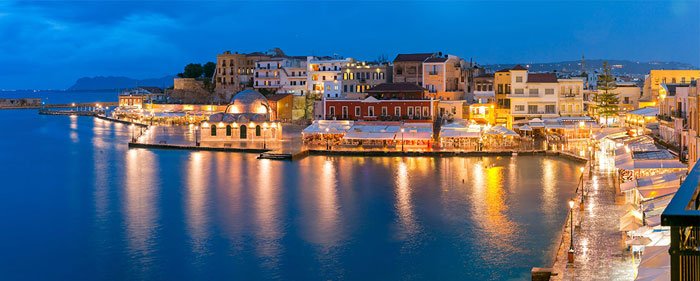After more than half a decade of an exhausting, austerity-driven recession …
Chania house prices are on the cusp of a broader pricing recovery. After more than half a decade of an exhausting, austerity-driven recession, Greece has forecast economic growth in 2017. The Greek economy grew 0.3 percent in 2016 and is expected to grow by 2.7 percent this year and by 3.1 percent in 2018.
In Greece’s metropolitan areas, house prices dropped by just 0.46% during 2016, the lowest annual fall in house prices since 2009, according to the Bank of Greece. When adjusted for inflation, house prices actually rose slightly, by 0.03%. Greek house-prices dropped over the year, but during the first quarter of 2017 Chania house prices and Thessaloniki house prices slightly rose.
- In Athens, the average price of apartments fell slightly by 0.35% (but increased by 0.15% in pragmatic terms) during 2016, after declines of 4.99% in 2015, 6.8% in 2014, 11.45% in 2013, 12.91% in 2012, and 8% in 2011.
- In Thessaloniki, Greece’s second largest city, house prices dropped by 0.5% in 2016.However, afteradjusting for inflation, house prices actually rose by 0.35% from the previous quarter.
- In other cities, there was a slight house price drop of 0.6% (-0.1% in real terms) in 2016, sharply down from a year-on-year decline of 5% in 2015 and the lowest annual decline since 2008.
- On a seasonally-adjusted basis, Chania house prices slightly increased by 0.7% in March, after a negative rate of -1.2% last year and currently Chania property market, seems promising after several enigmatic years.
Chania House Prices continues drop deceased; open doors to foreign investors
Chania home prices fell by 0.2% in December 2016 following on from declines of 0.4% in October and 0.3% in September. When the article of that data was published on arencores.com, the highest-rated response was: “If you have a house for sale in Chania, drop the price because next year it’s going to be a lot lower.”
It is worth taking a closer look at these data. The most important figure to emerge is that Chania house prices in May actually rose but nationwide reported a 0.46% drop. That figure perhaps will make statistical sense to some, but it’s no comfort to a home buyer whose bank deposits won’t be seasonally adjusted.
Chania real estate is an attractive market right now; one can buy apartments in Chania for as little as EUR 40,000-65,000 and renovate them for EUR 10,000 -25,000.
Chania real estate is an attractive market right now; one can buy apartments in Chania for as little as EUR 40,000-65,000 and renovate them for EUR 10,000 -25,000. If the weekly rental prices is EUR 400, that translates to rental income equal to nearly EUR 20,000 per year. On the other end of the real estate spectrum are the expensive properties such as villas and maisonettes.

Indeed, there is an increased demand for Chania properties and many houses in Chania are being purchased at a healthy rate purchases by Russian and Israelis investors. Furthermore, Chinese investors are also increasingly beginning to knock on the Chania real estate door for investment opportunities mainly because of the attractive Chania house prices.
The number of Chinese investors is now close to the number of investors from the USA and North Europe and is expected to increase.
The Greek residential property prices have fallen by 45.2% from the peak year of 2008. Regardless of the minor improvements, real estate investments remain remarkably low. The number of real estate transactions in Greece has fallen by 72% since 2008, according to the Bank of Greece.
House construction continues to fall, with building permits falling 6.9% to approximately 12,500 units in 2016, a remarkable difference to the 70,000 to 80,000 permits issued annually from 2004 to 2007. In Athens, building permits have fallen 1.4% in 2016 compared to 2015.
In Chania while the building permits index actually rose by 0.4% points it remained well below the 50 points level separating expansion from contraction, reflecting an anaemic market demand and a lack of new developments.
According to PwC, Greek house prices are expected to slightly increase by 0.6% every year from now on. “The Greek real estate market will recover at a slower pace than the Greek economy unless policies to boost demand and reduce oversupply are implemented,” as the PwC reports.






